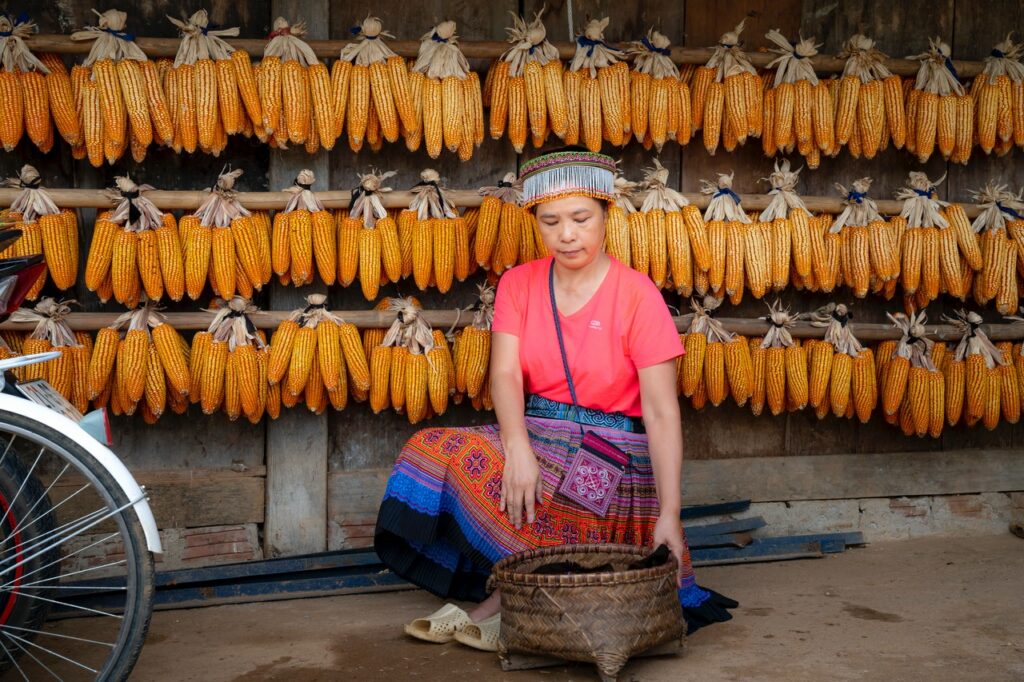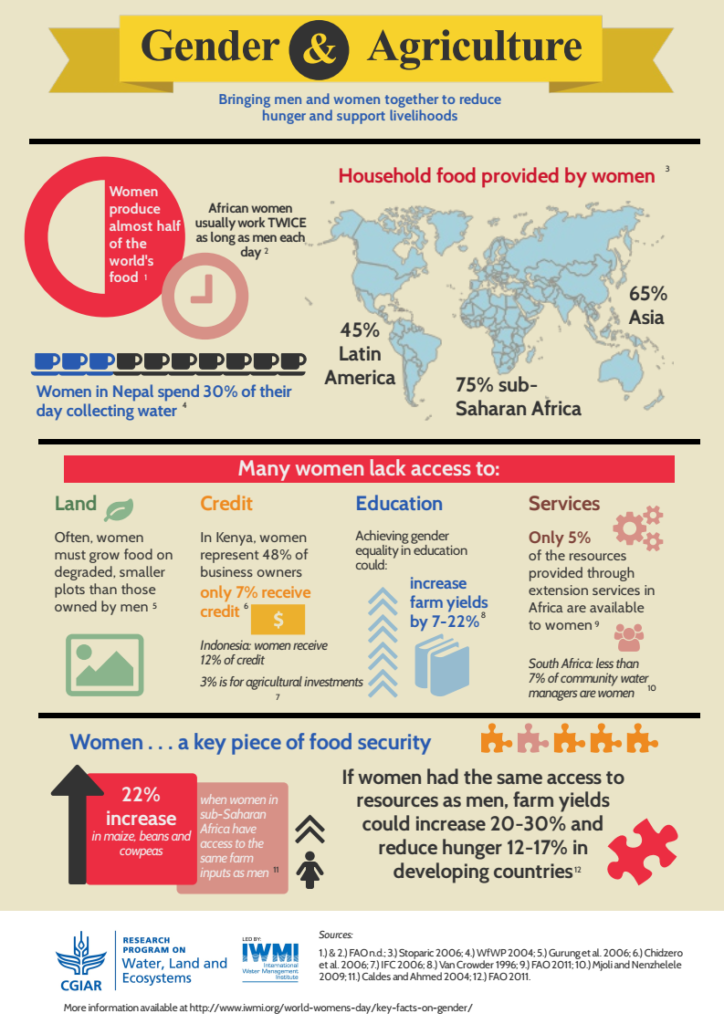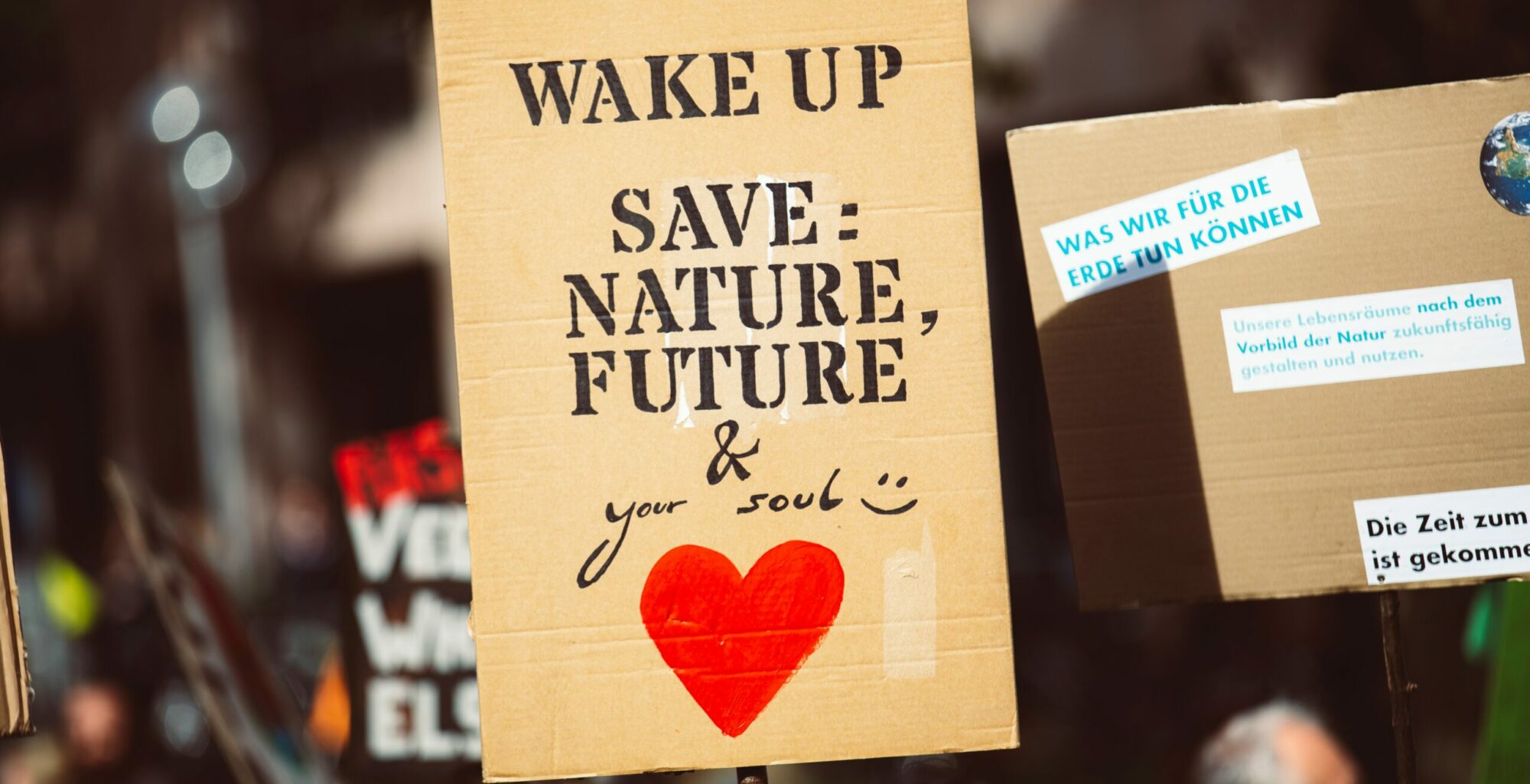
Agriculture is considered the backbone of most developing countries in Sub-Saharan Africa (SSA). Yet, climate change impacts such as increased temperatures have affected agricultural yields and livestock. This renders households and communities vulnerable, especially the rural poor, smallholder farmers predominantly dependent on agriculture to sustain livelihoods.
According to the United Nations, two-thirds of the people in SSA work in the agriculture sector, and approximately 43% are women[1]. However, it can be noted that climate change affects men and women disproportionately. At the core of vulnerability are women due to many factors that impede them from fully contributing to attaining food security. A range of chores such as home caregivers, house chores responsibilities, and household heads are some of the gender roles that burden women, and climate change has only exacerbated it.
Gender mainstreaming is an exciting yet quite sensitive topic, especially around agriculture. Discussions must consider men’s and women’s needs, priorities, and preferences for successful uptake of interventions like CSA. The number of men and women involved in agriculture and the respective response to innovations/technology differs. Arguably, women engaged in agriculture are constrained by and deeply rooted and engraved societal norms. Figure 1 below illustrates the roles women play in agriculture, and how they are affected.

Incorporating climate change into agricultural plans is challenging and calls for integrated and coordinated effort across different levels and platforms. The International community, Governments, Non-Governmental Organizations (NGOs), the private sector, and civil societies have and still are introducing interventions such as Climate-Smart Agriculture (CSA) in the quest to end poverty and build resilient livelihoods. The aim is to increase production yields, mitigate impacts of climate change, build resilience to climate change impacts and reduce greenhouse gas emissions. Nevertheless, the principles work in a contextual and specific setting which should also be inclusive. Despite these efforts, there are significant constraints to CSA’s uptake, among other factors to include gender, education, age, and access to credit.
However, addressing constraints to the uptake of CSA interventions is crucial and calls for robust measures. Women can be powerful agents of change in reducing poverty when empowered with the right tools such as access to credit and land rights, and education. Yet, a lack of empirical data hinders the recognition of women’s contribution to the sector. Again, gender issues must include men and women for effective implementation of any crucial interventions in agriculture. However, the enormous empowerment can be to address the deep-rooted social and cultural norms that restrict women from exercising the right to control resources.
REFERENCES
International Water Management Institute (IWMI) Oct 2014. International Day of Rural Women. Accessed from https://www.iwmi.cgiar.org/2014/10/international-day-of-rural-women/ on June 16, 2021.
Khoza, S. (2020) A gendered approach to climate smart agriculture adoption by smallholder farmers in Malawi and Zambia. North-West University (South Africa).
Lipper, L., McCarthy, N., Zilberman, D., Asfaw, S. and Branca, G. (2017) Climate smart agriculture: building resilience to climate change. Springer Nature.
MURRAY, U., GEBREMEDHIN, Z., BRYCHKOVA, G. & SPILLANE, C. 2016. Smallholder farmers and climate smart agriculture: Technology and labor-productivity constraints amongst women smallholders in Malawi. Gender, Technology and Development, 20, 117-148.
NYASIMI, M. & HUYER, S. 2017. Closing the gender gap in agriculture under climate change.
OECD/FAO. 2016. OECD-FAO Agricultural Outlook 2016-2025. Agriculture in Sub-Saharan Africa: Prospects and challenges for the next decade. Accessed from: http://webcache.googleusercontent.com/search?q=cache:eC_mrHvboWsJ:www.fao.org/3/BO092E/BO092E.pdf+&cd=2&hl=en&ct=clnk&gl=de&client=firefox-b-d on June 18, 2021
